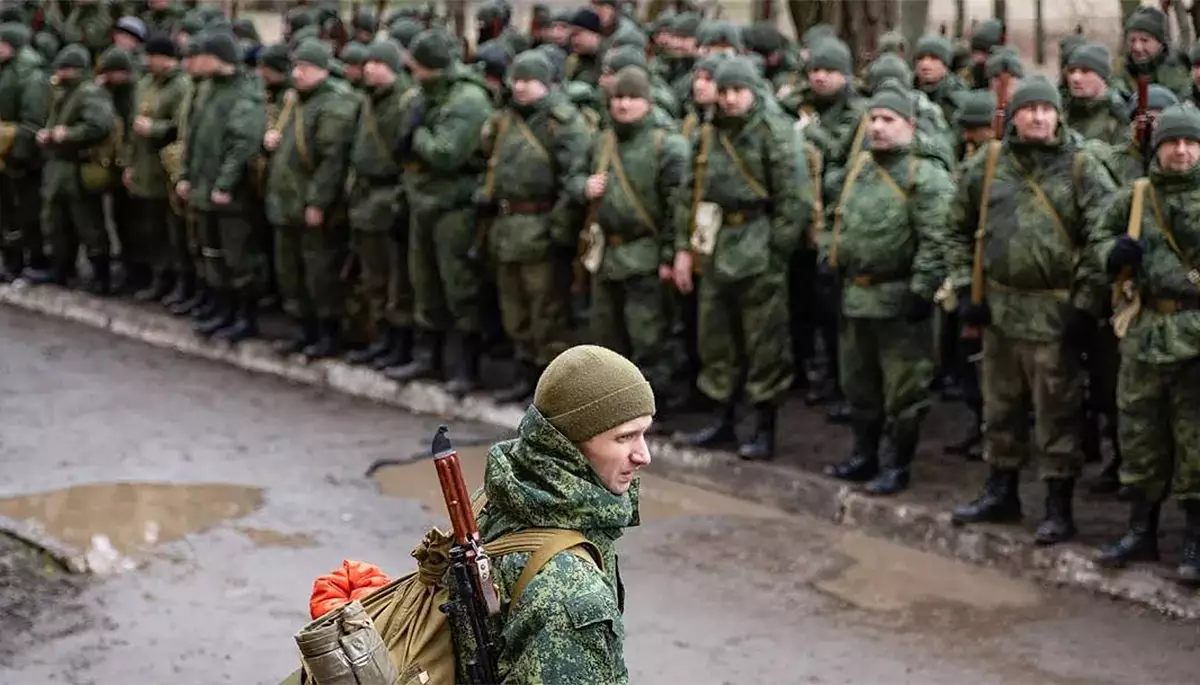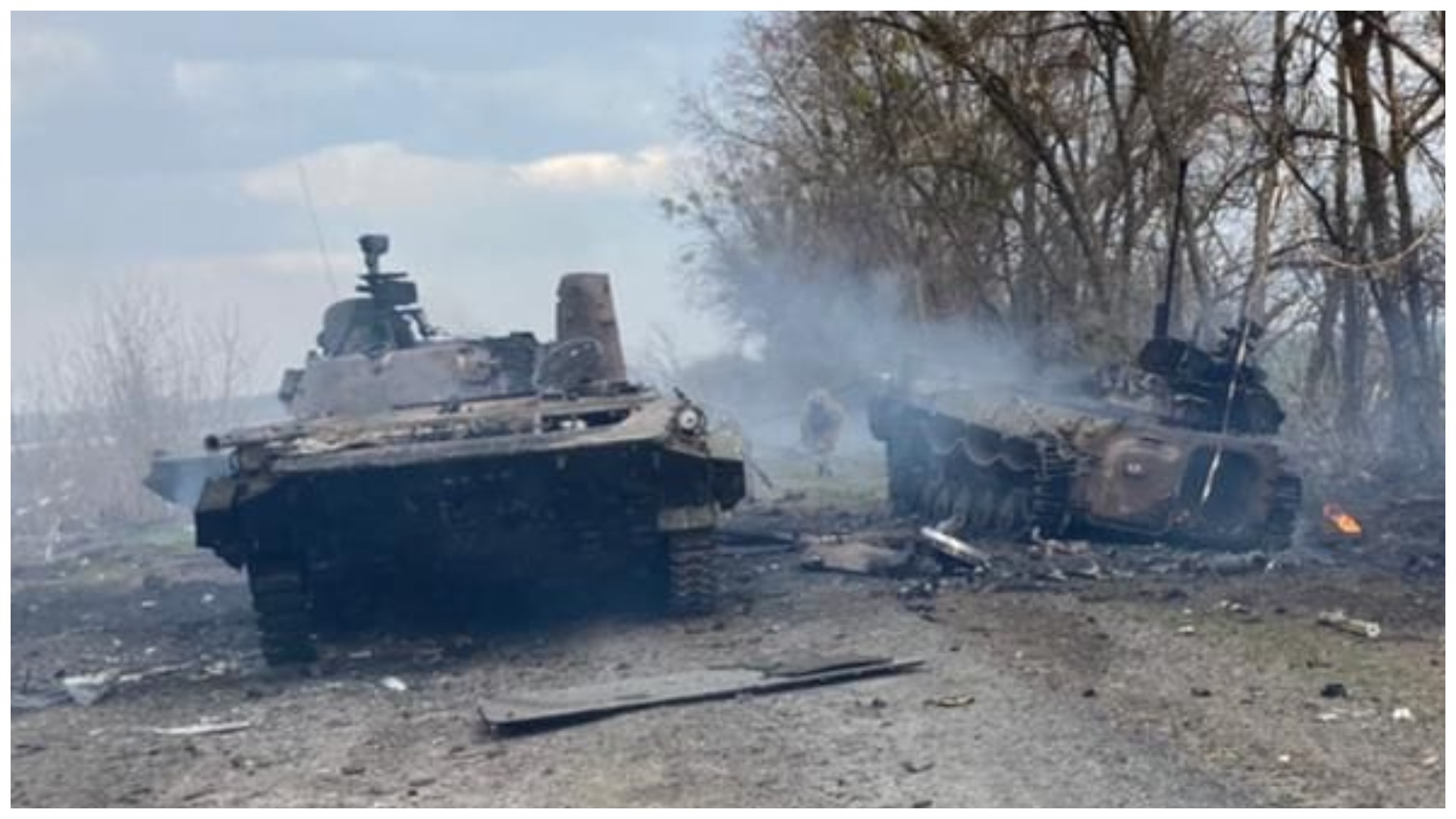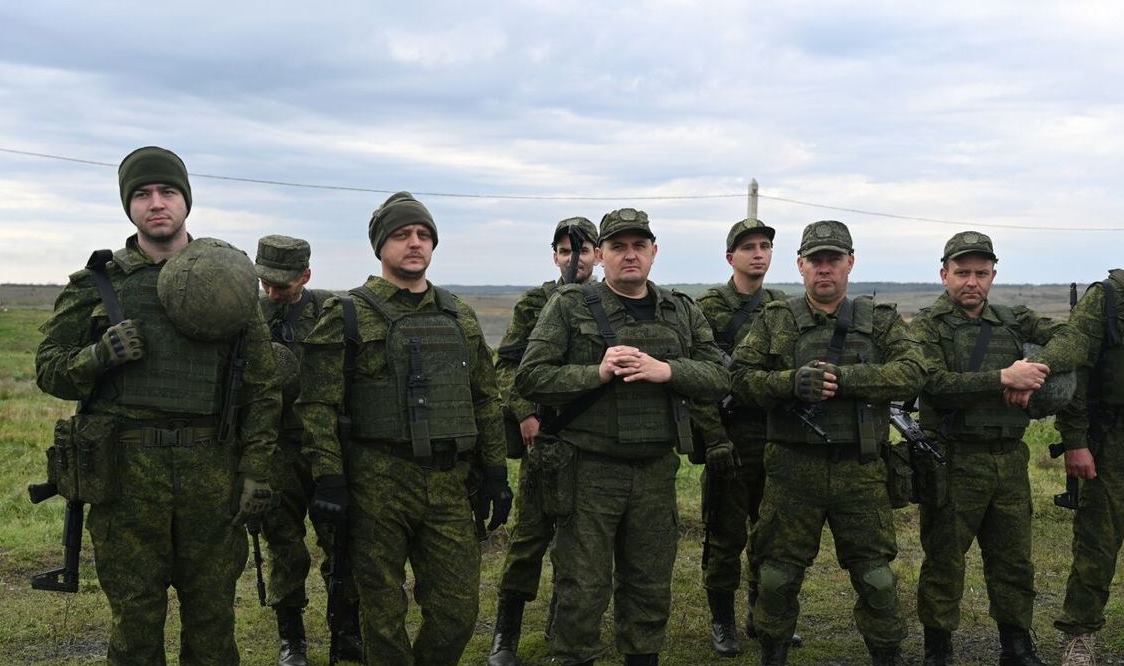
Russia is preparing for a long-running major war. To do this, it changes legislation that will help it effectively replenish the ranks of the invasion army.
This applies to men from 18 to 70 years old, whom Russia can mobilize for its forces.
Militarnyi explains how Russia is going to replenish the losses of its army, which it suffered in the war against Ukraine, and increase its numbers. We will also describe the methods Russian authorities use to influence Russian citizens, so that men do not avoid military service or mobilization for the army.
The Russian Federation expected to conduct a rapid war and capture Ukraine with a small force in a short time. However, it failed, and this phase of the war has been going on for almost a year and a half.
A large-scale invasion began on February 24, 2022. The Russian invaders began to shell facilities almost all over our country, and its ground forces went on the offensive along the entire border line and from the territory of Belarus.

For these purposes, Russia has allocated its most combat-ready military units and formations. By that time, the Russian invasion forces consisted of more than 150.000 military personnel, mostly contract soldiers.
However, the Ukrainian Defense Forces inflicted heavy losses on the invaders in manpower and equipment and knocked them out of the north of the country. After that, the Russian leadership made it clear that there were not enough limited forces for the war against Ukraine. Therefore, the Kremlin had to involve all its resources in the war in order to compensate for the losses and continue its offensive operations in various areas of Ukraine.

Initially, a campaign began in the Russian Federation with the recruitment of new contract soldiers. They also began to encourage conscripts to sign contracts. In some cases, contracts were signed secretly without informing conscripts of the issue. The conscripts were then sent to the war in Ukraine.
Russian servicemen who ran out of contracts were also forbidden to quit their service until the completion of the so-called “special military operation” (as Russia calls a full-scale war against Ukraine).

However, that was not enough for the Kremlin. To strengthen the group of troops, the Russians began to attract mercenaries from the so-called PMC Wagner. Due to significant losses in battles with Ukrainian defenders, the PMC Wagner began to recruit prisoners from Russian prisons. Wagner began to accept prisoners aged 22 to 50, with some exceptions. They performed the tasks of “stormtroopers” – the fighters who should be the first to attack the enemy’s defensive positions. More than 20 thousand Russian mercenaries were killed by the Armed Forces of Ukraine just during the battles in eastern Ukraine, another 80 thousand were injured.
In September 2022, Russian President Vladimir Putin signed a decree on so-called partial mobilization. In fact, the Russian authorities promised to mobilize only military reservists. But lately, instead of such promises, Russian media reported on cases where men who had many children, no combat experience, and numerous diseases received summonses, although it would seem that such people should not have been mobilized.
Putin, in his video address to the Russians, promised that those mobilized before being sent to the units would definitely undergo additional military training. At least 300,000 Russians were to be mobilized, but presumably that figure could be higher.

The Russian Parliament also introduced the concepts of “mobilization” and “wartime” into the Criminal Code and approved amendments on responsibility for desertion during mobilization or in wartime.
According to the adopted amendments, the aggravating factor for crimes against military service would be considered not only the conditions of armed conflict or hostilities, but also “the period of mobilization or martial law, in wartime.”
In addition, criminal liability was introduced for voluntary surrender (from 3 to 10 years) and for looting (up to 15 years). According to the amendments, if during the period of mobilization or martial law the military left his unit for up to 10 days, he faced up to 5 years in prison. If he was absent for a month, he could spend 7 years in prison, and if he was absent for more than a month – 10 years behind bars.
Russian military in reserve who were called up for training, were declared criminally liable for non-appearance or desertion, just like in cases with contract soldiers and conscripts. For refusing to participate in hostilities, a Russian could receive up to 3 years in prison, and if such refusal entailed grave consequences – up to 10 years.
It is worth noting that the decree on the completion of partial mobilization in the Russian Federation has not yet been announced.
Ukraine began to receive the latest Western weapons, artillery and equipment, and its military quickly studied and used the best way to operate with the received equipment. Therefore, the losses of Russian invaders on the battlefield increased, and the temporarily occupied territories in the Kharkiv, Mykolaiv and Kherson regions were liberated.
The Russians were forced to close their losses by saturating the front line with mobilized soldiers, most of whom had poor military training, which again led to significant losses.

To compensate for these losses, to continue waging war against Ukraine, and to prepare for long-running hostilities, the Russian Federation filed the next portion of changes to the legislation. The Kremlin was trying to increase the male population, which could fall under full mobilization when it is announced. These changes in the laws of the Russian Federation currently do not allow men to avoid mobilization or conscript service.
In particular, in April 2023, Russia began to change the rules of conscription due to the introduction of appropriate amendments to the law. One of them involved the introduction of electronic summons, which would be distributed online. At the same time, it was stated that the summons should be considered received even if the person did not see it in the mobile application.
It was assumed that the summons would be published in the general register of conscripts, a large database created by the Russian authorities and maintained by the Ministry of Defense. The database includes personal and passport data of the soldier, his place of registration and place of actual stay, information about education, place of work, state of health, and family status.
The summons will be considered received after seven days from the date of its publication in this register. After 20 days of non-attendance, the military registration office introduces restrictions on a number of rights: a ban on the registration of individual enterprises, registration with the tax service, driving, obtaining loans, etc.
The conscripts also receive a ban on leaving the country from the moment they receive the summons. This is done so that they do not run abroad. All their personal information, which Russian state institutions already have, will also be included in the newly created database of military personnel. The Russian government claims that the new norms will apply with the beginning of the autumn call-2023.
In June 2023, Putin also signed a law providing that those drafted into the army will have to hand over their passports. This must be done within five days of the decision to call. The passport will be returned at the end of the service. If the Russian, whose right to leave the country is limited, does not hand over his passport without a valid reason, the document is going to be invalidated.
Also in July 2023, an amendment was introduced to the law on military service in Russia, which effectively prohibits lawyers from representing the interests of conscripts in military enlistments. According to the new changes, only citizens or their “legal representatives” will be able to file complaints about the actions of military enlistment offices. Under current law, “legal representatives” include parents, caregivers, or adopters of a minor citizen. It turns out that all Russians who have reached the age of 18 and have been mobilized have to interact with the military enlistment office by themselves. The lawyers will not be able to represent their interests in cases of violations.

In addition, from October 1, Russia will increase the fine for failure to appear at the military registration and enlistment office by 10 times. Failure to appear will entail a fine of 10,000 to 30,000 roubles. Currently, the fine for this ranges from 500 roubles to 3,000 roubles.
The Ministry of Defense of the Russian Federation proposes to put men on military registration and make changes to military registration documents without personal attendance at the military registration and enlistment office of reservists.
The Russian Federation also raised the draft age, which from January 1, 2024, will be from 18 to 30 years. Previously, the boundaries were 18-27 years. In addition, conscripts in the period of mobilization and martial law will be able to sign a contract for military service for a period of one year already after a month from the beginning of their service.
At the same time, the Russian Federation increased the maximum age of military personnel in reserve and mobilization reserve.
In particular, for soldiers, sergeants, and warrant officers, the figure increased from 50 to 55 years. And for military personnel belonging to the first category, the maximum age will be increased from 35 to 40 years, for military personnel in the second category, the figure will increase from 45 to 50 years, the third – from 50 to 55 years.
The maximum age of stay in the mobilization reserve was also increased. For senior officers – from 60 to 65 years, for junior officers – from 55 to 60 years, and for soldiers and warrant officers – from 45 to 55 years. The maximum age in the mobilization reserve for officers of the highest rank is maintained at 70 years. The norms of the law will come into force on January 1, 2024. However, until January 1, 2028, a transition period is provided, during which citizens in stock will be transferred to retirement in stages.

In addition, the law, which was signed in July, provides for the possibility of concluding a contract to stay in reserve with citizens of another state under the age of 52 years.
Parents of three children and parents of disabled children are also subject to mobilization in Russia. However, Russian propaganda media claim that the General Staff of the Russian Army issued an order that allegedly extended the reprieve to parents with three children. But there is no confirmation of this: both on social media and in the media of the Russian Federation, it is said that such men are mobilized.
Amendments to Russian legislation actually create total control over the population suitable for conscription and mobilization and make it impossible for men to escape abroad when declaring general mobilization or conscription for military service.
Such actions of the aggressor state indicate that Russia is still ready to fight with Ukraine and transform the war of conquest into a format of depletion of resources – both human and technical. To do this, Russia is ready to throw thousands of mobilized and poorly trained people to the front in order to hold the temporarily occupied Ukrainian territories.
Any statements of the Russians about “negotiations” are only attempts by the invaders to get a pause, which will help them better prepare personnel and military equipment for the next stage of the great war with Ukraine.

Perhaps the Russian leadership views the military conflict with NATO countries as real, and that is why it is trying to attract as many people as possible. But the main thing that needs to be realized now is that the presence of a large human resource in the Russian Federation, which it can mobilize for the army, poses a threat to both Ukraine and other neighboring states with Russia.
Підтримати нас можна через:
Приват: 5169 3351 0164 7408 PayPal - [email protected] Стати нашим патроном за лінком ⬇
Subscribe to our newsletter
or on ours Telegram
Thank you!!
You are subscribed to our newsletter